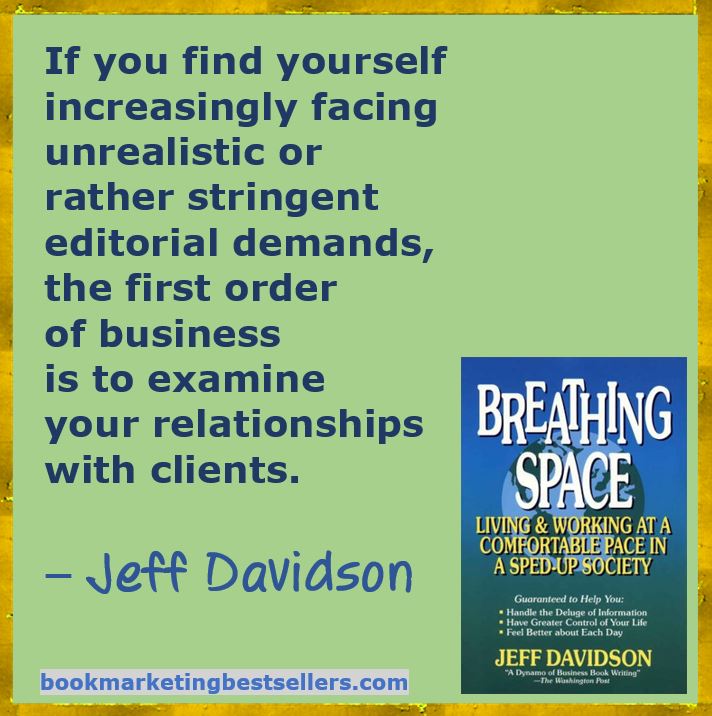Remember when email was a writer’s boon? The ability to zap over a finished manuscript on its due date, as opposed to subjecting the finished manuscript to the uncertainties of the postal service or even an express delivery service days before the due date, was a writer’s heaven. No more worrying about envelopes, zip codes, stamps, or delivery charges.
Increased Productivity, Increased Expectations
Whether you completed the assignment well before submission time or were scrambling right up to the last minute, zapping your piece through cyberspace represented the ultimate completion and instant gratification for both sender and receiver.
As with all productivity gains that follow the introduction of new technology, what quickly follows with most major advances in communications is all too predictable. When you only had a typewriter, with which you could generate correspondence at a rather slow pace, you and others working with you gauged your expectations accordingly.
With the introduction of the PC, which allowed users to generate thousands of pieces of correspondence with a few keystrokes, everyone’s expectations as to how much could and should be done within a given time frame rose dramatically. And make no mistake, once a higher level of technology-induced expectations takes hold, it never retreats.
Impacting Relationships
Today the speed of communication impacts every aspect of relationships between publishers and editor/writers, and between publishers, editors, or writers and any outside party awaiting the work. For simplicity, we’ll simply address that party as the client. While tens of thousands of words can be zapped from one location on earth to another in seconds, the speed of transmitting the written word has no relationship to the effectiveness of the writing.
Sure, gathering and checking facts is easier because of powerful Internet search engines. Likewise, writers and editors have an easier time identifying potential sources, assembling bibliographies, and even producing a roster of useful websites should such information be applicable to the piece in development. Even post-production work is accomplished more quickly by use of grammar checkers, spell checkers, thesauruses, and electronic indexers.
The writing and editing itself still proceeds in the old fashioned way, one word at a time, according to a pre-established assignment or mission to accomplish a predetermined objective.
Mastering Relationship Dynamics
If you find yourself increasingly facing unrealistic or rather stringent editorial demands, the first order of business is to examine your relationships with clients. The way a first assignment unfolds often dictates the qualities of the relationship during subsequent assignments.
If you were summoned by a client in a rush, that client may be in a rush when issuing future assignments. Even among clients who are not in a rush, who issue initial assignments with reasonable due dates, subsequent assignments are not likely to involve more generous terms and lengthier due dates. If anything, the opposite occurs.
Paradoxically, the more admirably you perform and the more a client comes to rely on your services, the greater the chances that you will be called upon to handle more challenging assignments with ever shrinking time frames. Seemingly, your reward for being responsive, efficient, and willing to go the extra mile is to get more of the same. And who are you to resist?
During the First Encounter
As a writer/editor, even one with highly established credentials, you recognize that the client can call on many others with writing and editorial skills. Will you risk making waves? How do you maintain effective professional relationships with clients, negotiate challenging, lucrative and reasonable assignments while staying productive, competitive, balanced and happy?
Recognizing that the nature of relationships between clients and editorial service providers are often established during the first encounter, strive to ensure that you initiate your relationships on the proper footing. This requires a special blend of assertiveness, professionalism, empathy, and good business practice.
Jeff Davidson Bio
Jeff Davidson, aka The Work-Life Balance Expert®, offers keynote presentations and workshops on creating work-life balance, managing the pace with grace, and thriving in a hyper-accelerated world. Jeff is the leading personal brand in speaking, writing, and reflecting on work-life balance issues, and he has a passion for speaking to organizations who want to help their employees make rapid progress in this arena. He has spoken to Fortune 50 companies such as IBM, Cardinal Health Group, Lockheed, American Express, Wells Fargo, and Westinghouse.
Jeff is the author of Breathing Space, Simpler Living,and The 60-Second Organizer. Jeff’s books have been published in 19 languages including Arabic, Chinese, Japanese, Malay, Turkish, and Russian; have been featured in 68 of the top 75 American newspapers; and promoted in Time Magazine and the Wall Street Journal.
About John Kremer
John Kremer is author of 1001 Ways to Market Your Books, the Relationships Matter Marketing program, and many other books and reports on book marketing, Internet marketing, social media, and book publicity. -- John Kremer on Book Marketing.



